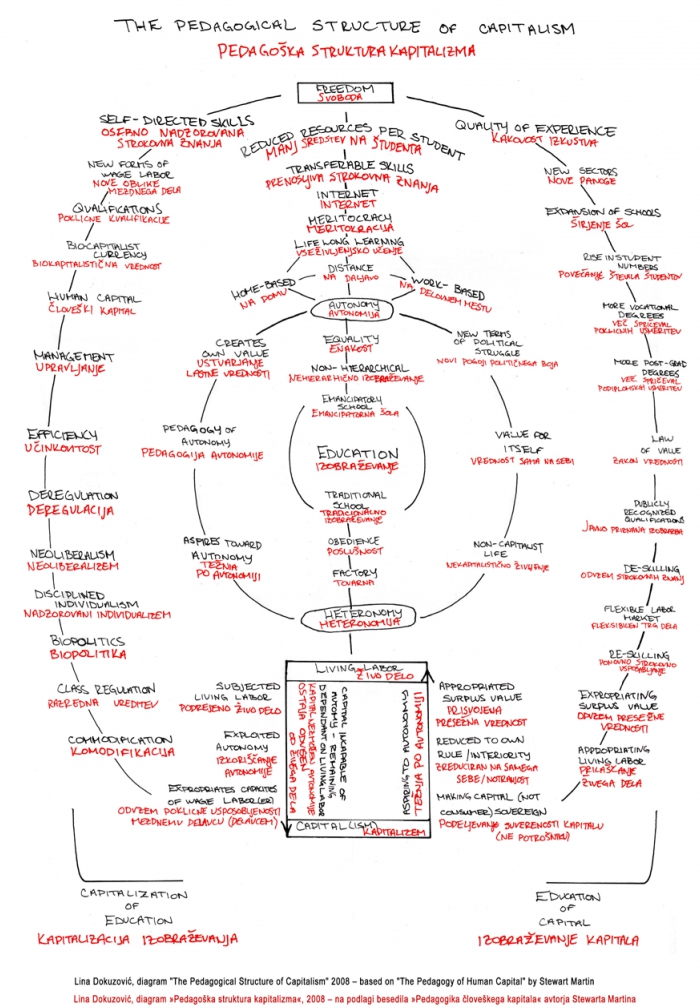Re-Articulating the Scenarios of Environmental Catastrophe
Re-Articulating the Scenarios of Environmental Catastrophe
Increasing social inequality, aggravation of living standards, short-sighted environmental policy and the violation of human rights are all facts pointing to the increasing extremes of the conditions of life. These conditions are not cultural dysfunctions, but are fundamentally connected to the processes of global capital to systematically exploit the environment. Re-Articulacija project members Marina Grzinic and Sebastjan Leban invite the festival audience to join political philosophers Sefik Seki Tatlic and Madina Tlostanova, along with transmediale 2009 Award nominee Petko Dourmana to engage in a session of collective research to counter contemporary global forms of exploitation, control, censorship and expropriation.
Marina Gržinić
Enviromental catastrophe - A culmination of capital deregulation and privatization processes!
Today’s environmental catastrophe scenarios mask the dysfunctional capital processes of unscrupulous profitmaking, which have been at the core of the tapping of natural resources in the past decades. Currently, the neoliberal capitalist environment is exploited through simultaneously speculative and highly coercive strategies. As a result, natural resources - and the environment as a whole – are totally instrumentalised and privatised.
Sebastjan Leban
Rethinking the future: Politics of exterminations
The increasing conditions of poverty, subordination and inequality are strictly connected to environmental policies that, a longside the market economy and the global expansion of capital, has become basic regulator of life. The number of victims produced by this necropolitics will increase drastically in the years to come. This process of extermination and deregulation artificially maintains in the neoliberal global hegemony leading to extreme life conditions both in the environment and in society.
Šefik Seki Tatlić
The Vice of the Democratic Man
Accepting the monopoly over equality means to become, as Jacques RanciËre would say, equal only in front of the market. Doing this means perceiving solidarity as an obstacle to 'private success in life', and seeing freedom as only the freedom to join the necrophilic urge to pervert every notion of meaning, aside from that which states that there is no other meaning, but that produced by the neo-liberal order.
Madina Tlostanova
Re(dis)articulating the Myth of Modernity through the De-colonial Perspective
Environmental catastrophes are a result of the darker side of modernity, of a global 'coloniality' – a set of longstanding patterns of power that emerged as a result of colonialism, but continue to exist long after colonialism and colonial administrations are gone. These patterns survive, according to N. Maldonado-Torres, in culture, labour, inter-subjective relations, knowledge production, books and other aspects of modern existence.


